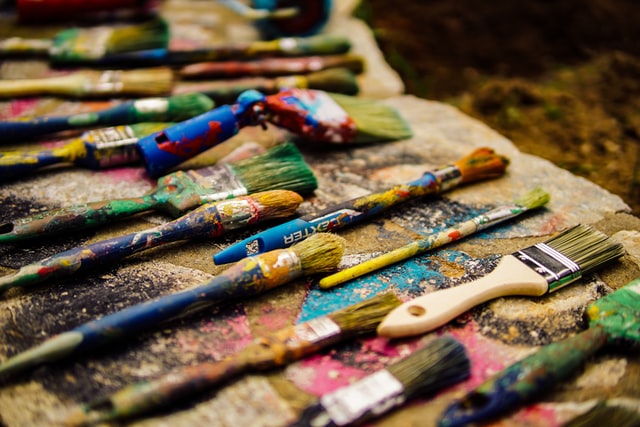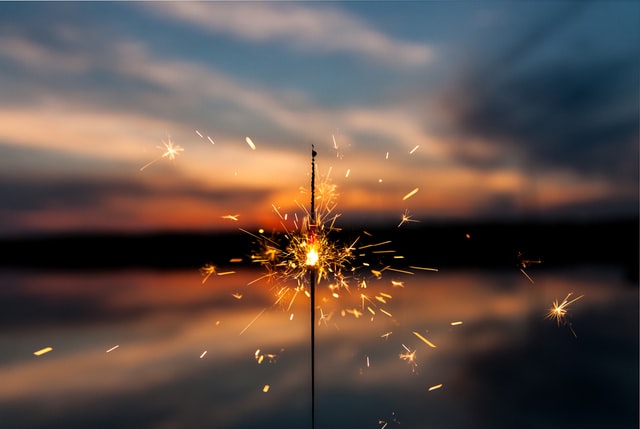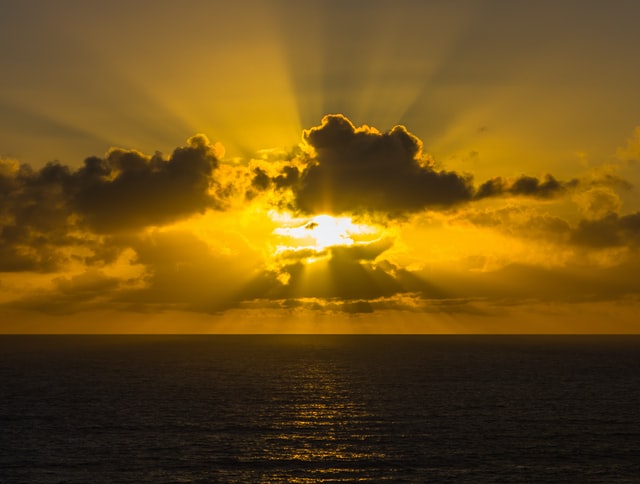by Terah Van Dusen
Grandma Peggy is a ticking bomb. I can’t predict when she’ll stop. Stop ticking. I know only that she will. I know only that I will be there. If not physically, then spiritually, somehow. I know only that my mother, her daughter—Moonbeam—will be somewhere near Lake Erie when it happens.
I wash dishes by hand, swiveling a sponge inside a mason jar, trying to get at some milk gunk with a scratchy green corner. Will it be a sunny day, a slow day, a work day? Will it be morning or midnight when she goes? Will my daughter, Autumn, be with me when I get the call? Will we be in Tucson, with Grandma Peggy? Or here, on the farm?
I’ve been preparing for months, maybe years, for the inevitable. What is happening is that I am losing a parent.
In a corner of my mind, I gently suggest to the Universe that it arrange that she go out at midnight, in her sleep. That she would not know what happened in the slightest—not at all. That she would just wake up with the mermaids, the selkies, and the centaurs of her very own artwork. Of her creations: this artist. I gently ask the Universe to conjure up her wildest imagination to slip into, peacefully…a splatter-painted afterlife, smelling of acrylic and oil and blank canvas, waiting to be filled.
We’ve discussed where the paintings will go: With me, into climate-controlled storage. Though we don’t say it out loud, we hope the family will scuffle some over possession of her paintings and clay sculptures.
Grandma Peggy’s claim-to-fame is that Dennis Hopper of Easy Rider bought a painting of hers during an exhibit at the Fort Worth Art Center in the 1960s. The painting, she said, was of a field mouse sitting on a fence looking out over the horizon.
“It was a far out painting, and he was a far out actor,” she told me.
We’ve discussed other details, too, other than storage. Like if she wants to be cremated, or buried.
“If I still look good,” she said, pulling a cream kimono with red detailing out of the closet. “Dress me in this.”
I pictured her laying there, arms faintly crossed, large, droopy kimono sleeves. Would they tuck into the casket right? The sleeves? Here she had her arms splayed out into the air, as if she were ready to take flight. The sleeves look great, in this setting.
“That’s nice,” I’d replied, of the kimono. I was trying to play it cool. Act like planning for a death was the most natural thing.
Except that it wasn’t.
Too much. Too soon.
I shuffled, barefoot, as she placed the kimono back in the closet, steadying herself with one hand on her walker.
I sat down awkwardly at the foot of her bed, then stood up. I was watching my toddler pull silk scarves from a basket on the floor.
A few years ago, the roles were reversed. I used to rely on her. Now we were trying to have her rely on me. Worst of all, there is no one I can talk to about all of this because the person who would do that for me is her.
I don’t really resent my mother. I believe we are all doing the best we can, with what we have, inside, outside, and so on. I also am feeling that being Grandma Peggy’s single support person—a medical and financial Power of Attorney (are you her POA? a doctor recently barked), is a humbling, isolating journey, even from a distance. Me in Oregon, her in Tucson.
It is especially humbling trying to navigate a move for her in pandemic times. Now that we’re vaccinated, we are pursuing it again. She should be near us, in her place of origin.
Her current live-in help is a lovely band of care. Three Filipino women: Ruthie, Tina and Clarice.
They paint her nails and cook and I feel like the Power of Nothing. But I am grateful, so grateful, for them.
I wonder if when Grandma Peggy goes, or if she falls and needs to go to the hospital again, or if she eats too many pot edibles again, just trying to curb the pain in her spine…
I wonder if Ruthie, Tina or Clarice will text me or call me this time. I wonder what they will say to this near stranger.
I imagine three words: I’m. So. Sorry.
I cannot predict if the day will be rainy, sunny, September, or June. I just know that the simplest pleasures—my morning cup of coffee, for instance—just won’t taste right or go down right, for a very long time.
I wonder if I will scream or stay quiet.
But most of all, I will wonder what was going through hermind in those precious moments stone-stepping toward her departure from this lively, colorful, dimension that I know she loves so much. I hope it feels as if there’s a paintbrush in her hand, steady, not shaking. And that she feels she is poised, as always, to paint something extraordinary.
Terah Van Dusen is a poet and essayist near Eugene, Oregon. She writes, and takes photographs, for a local newspaper. Her body-of-work is composed of autobiographical essays, poetry and prose. She aspires to publish a memoir about her upbringing off-the-grid in Northern California. You can read her work at www.terahvandusen.wordpress.com.



